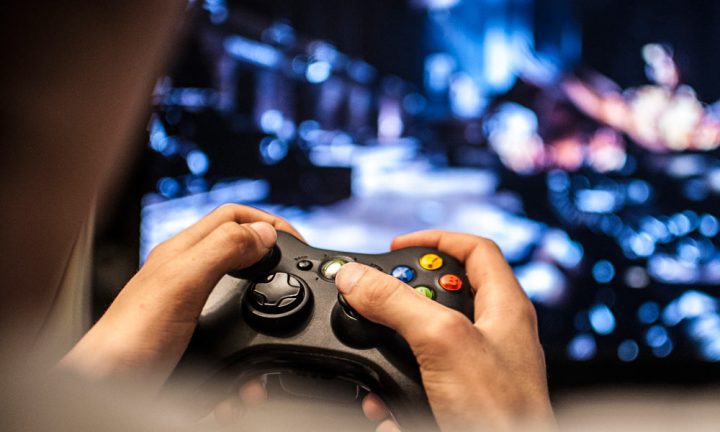Complex, challenging, and ambitious, video games have come a long way since the simple arcade titles of the 1970s—and evidence is mounting that the benefits of play go well beyond entertainment and improved hand-eye coordination.
In honor of National Video Game Day (today), here are 15 ways games are programming better people.
1. VIDEO GAMES MIGHT HELP EASE PAIN.

It’s common to try to distract ourselves from pain by paying attention to something else or focusing on other body mechanisms, but that’s not the only reason why games are a good post-injury prescription. Playing can actually produce an analgesic (pain-killing) response in our higher cortical systems. The more immersive, the better—which is why pending virtual reality systems may one day be as prevalent in hospitals as hand sanitizer.
2. VIDEO GAMES CAN HELP YOU MAKE NEW SOCIAL CONNECTIONS.
Gamers are sometimes stigmatized as being too insulated, but the opposite is actually true. The rise of multi-player experiences online has given way to a new form of socializing in which players work together to solve problems. But studies have shown games can also be the catalyst for friends to gather in person: roughly 70 percent of all players play with friends at least some of the time.
3. VIDEO GAMES CAN HELP IMPROVE BALANCE IN MULTIPLE SCLEROSIS PATIENTS.
Since it is a disorder affecting multiple nerves, multiple sclerosis patients often have problems with their balance—and no medications have been conclusively proven to help. However, one study showed that MS patients who played games requiring physical interaction while standing on a balance board displayed improvement afterward.
4. THEY CAN HELP IMPROVE YOUR DECISION-MAKING SKILLS.
We all know someone who seems to have a faster CPU than the rest of us, able to retrieve information or react in a split second. For some, that ability might be strengthened through gaming. Because new information is constantly being displayed during play, players are forced to adapt quickly. In one study, players who were immersed in fast-paced games were 25 percent faster in reacting to questions about an image they had just seen compared to non-players.
5. VIDEO GAMES CAN CURB CRAVINGS.

Players preoccupied with indulging in overeating, smoking, or drinking might be best served by reaching for a controller instead. A university study revealed a 24 percent reduction in desire for their vice of choice after playing a puzzle game.
6. VIDEO GAMES CAN REDUCE STRESS.
While some games are thought to induce stress—especially when you see your character struck down for the umpteenth time—the opposite can be true. A major study that tracked players over six months and measured heart rate found that certain titles reduced the adrenaline response by over 50 percent.
7. GAMERS MIGHT BE LESS LIKELY TO BULLY.
Though the stance is controversial, some researchers have asserted that action games may reduce a bully’s motivation to—well, bully. One study that had players assume the role of both the hero and villain showed that those controlling the bad guy’s behaviors displayed a greater sense of remorse over their actions.
8. VIDEO GAMES CAN HELP ADDRESS AUTISM.

Gamers using systems that incorporate the entire body to control onscreen movement have been shown to be more engaged in celebrating victories with their peers, which runs counter to the lack of communication people with autism sometimes present. A study also showed that sharing space with multiple players can also lead to increased social interaction for those with the disorder.

